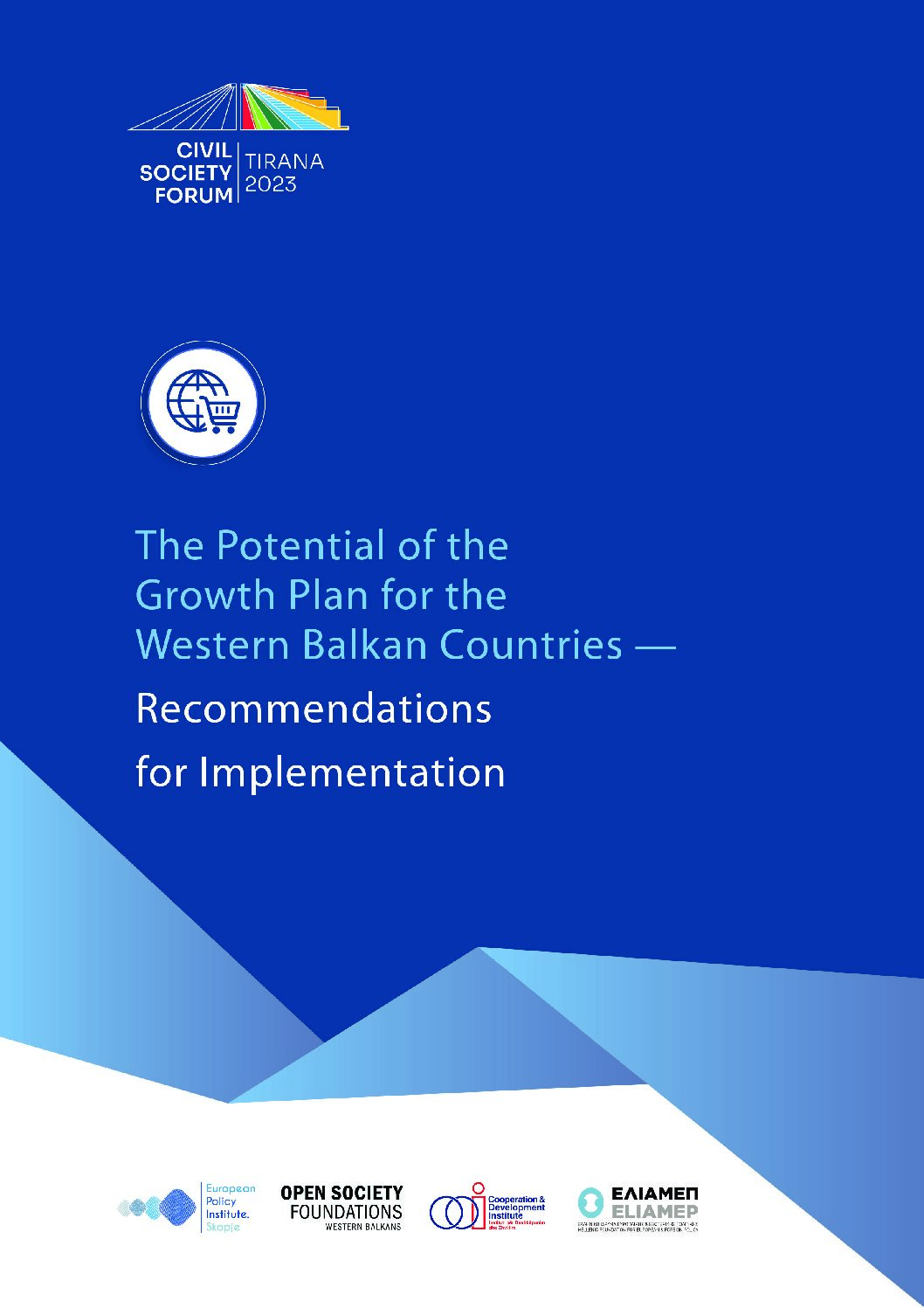Considering the overall political situation in Europe after the COVID-19 pandemic, the crisis resulting from the Russian invasion of Ukraine, and the current situation in the six Western Balkan countries (WB6), particularly concerning their progress toward accession to the European Union (EU), the European Commission (EC) proposed a new Growth Plan for the Western Balkans (Growth Plan) in the second half of 2023. The plan is anticipated to be a four-year activity (2024–2027) and is based on four pillars: 1. Enhancing the economic integration of WB6 with the EU’s single market; 2. Boosting economic integration within the Western Balkans through the Common Regional Market (CRM); 3. Accelerating fundamental reforms; 4. Increasing financial assistance to support the reforms through a Reform and Growth Facility for the WB.
The starting point of the Growth Plan is that economic convergence is a significant benefit of EU membership, as it has been demonstrated in the past that the highest positive impact on a country’s GDP and income arises from the integration with the EU’s single market. Yet, despite investments in modernisation and infrastructure, which are often emphasised in the WB6, achieving this goal also demands, even more significantly, fundamental reforms. These include strengthening the rule of law and fundamental rights.

